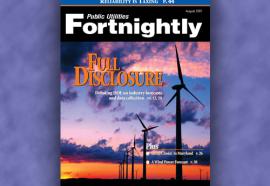ComEd to Partner with AMSC on Superconductor-based Resilient Electric Grid System
Submitted by aburr on Sat, 2014-07-19 20:10AMSC, a global energy solutions provider, and ComEd agreed to develop a deployment plan for AMSC's high temperature superconductor technology to build a superconducting cable system that will strengthen Chicago's electric grid. The Resilient Electric Grid (REG) effort is part of the U.S. Department of Homeland Security (DHS) Science and Technology Directorate's work to secure the nation's electric power grids and improve resiliency against extreme weather, acts of terrorism, or other catastrophic events.






